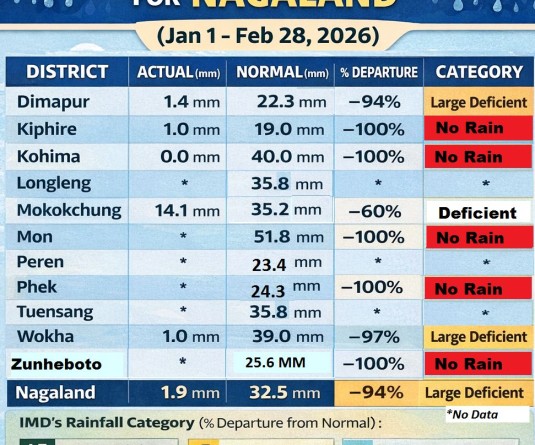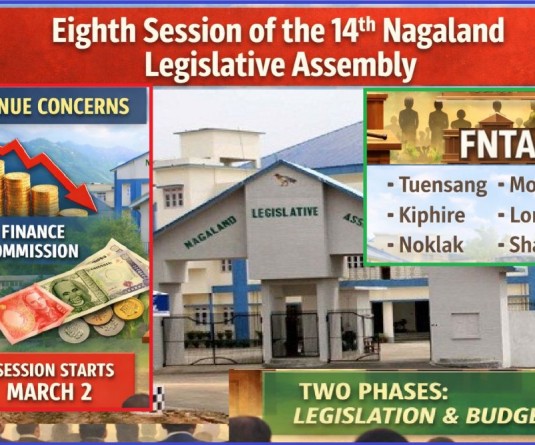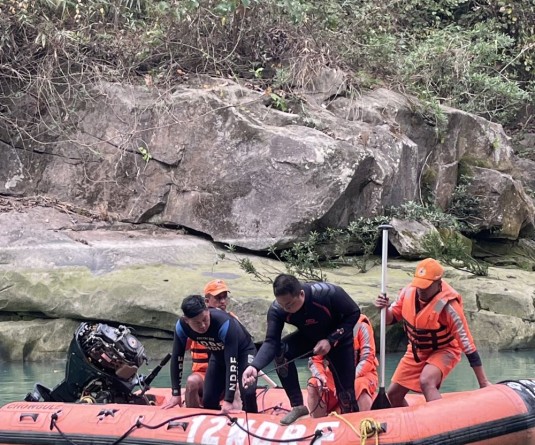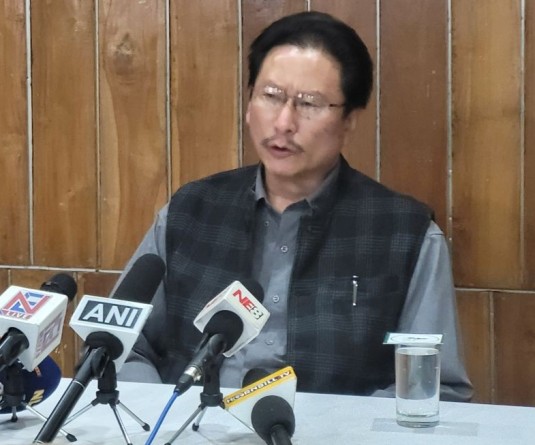The AGENT OF CHANGE: In this file photo, a Naga woman is seen covering her head with a traditional shawl. The International Women’s Day was celebrated today in various parts of Nagaland to honor women. (Photo by Caisii Mao)
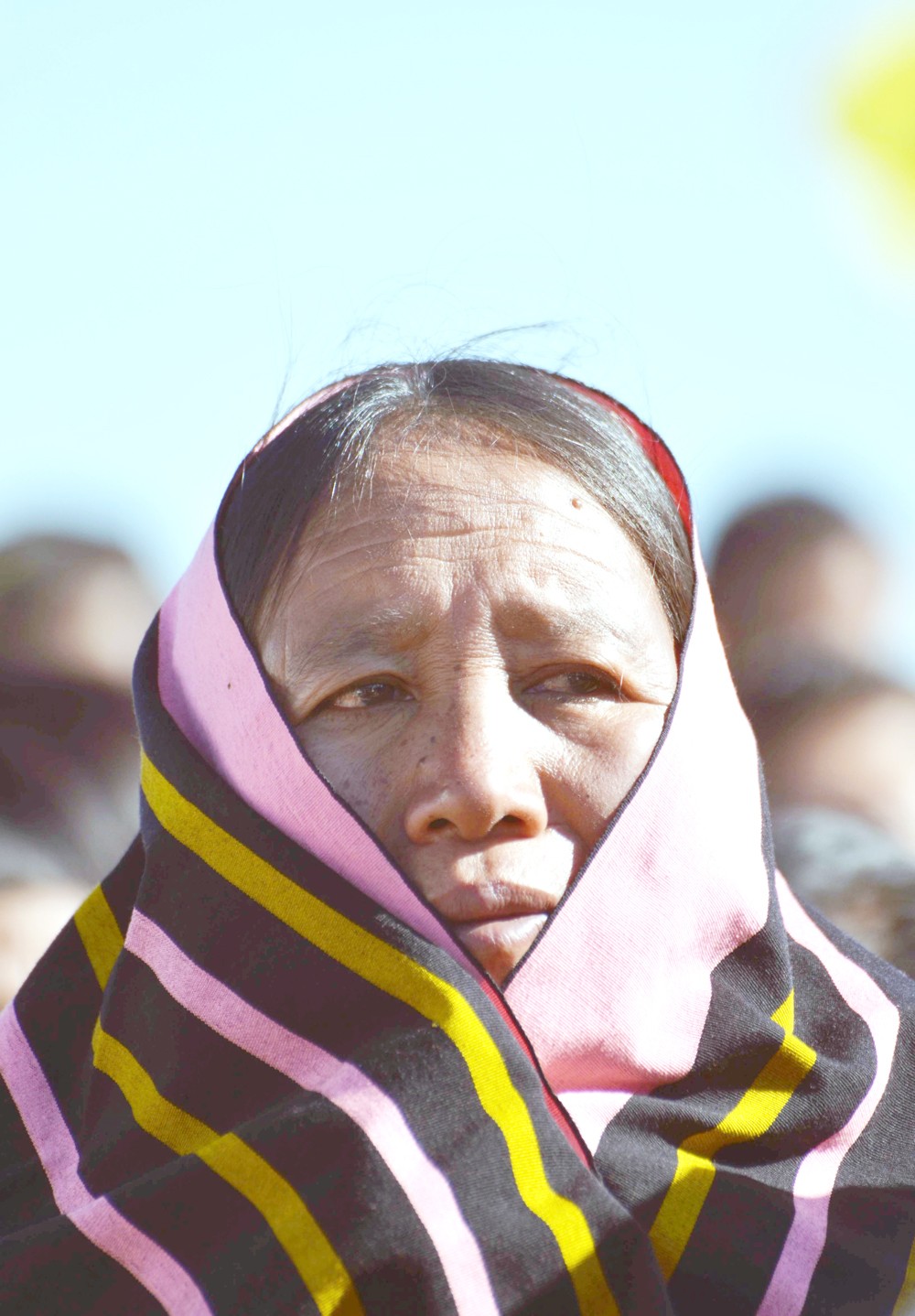
Dimapur, March 8 (MExN): Naga women today asserted the urgent need to be recognized as co-creators and agents of social change in the building of an equal and just Naga society, and to be valued as peace-builders. Taking the opportunity to celebrate International Women’s Day, Naga women deliberated and expressed concerns and challenges, and also shared the possibilities of hope towards an inclusive society.
Chairperson, Nagaland State Commission for Women, Dr Temsula Ao today emphasized on the importance of valuing oneself. Stating she will still choose to be a woman if given a choice today, she said there are many positive aspects in being a woman. Encouraging women to value their life, she asserted, “Respect your talent. Nurture your talent that will make your life valuable.”
Temsula was speaking at an event to commemorate the International Women’s Day, organized by the Miqlat Ministry NBCCWD in collaboration with Nagaland State Aids Control Society (NSACS), which was held at Miqlat Ministry New Rehab center in Purana bazaar. The objective of the event was to “encourage women to see the beauty of womanhood, and excel in every aspect of lives as women and also enlighten them with the looming social issues of HIV/AIDS related to women and be an agent of social change.”
Touching upon the theme, “The Gender Agenda: Gaining Momentum,” Temsula said “The world had recognized what women can do for humanity at large,” and momentum is being gained, but she stressed that “confrontation is not the way to move forward.” Stating that though life of women is little harder, especially in patriarchal society like Naga’s, she acknowledged that status of women in Naga society is on a better footing in some way. She therefore challenged the women to decide whether they should be complacent or ask for more. “If women had a say in legislation to be an agent of social change…” she asked. “ In order to do that, we have to be very calm and persuade our men folk to think of such inclusive society.” She encouraged the women to work hard and keep on trying to achieve such ideal situation.
The other speaker at the same event, Dr Joyce spoke on the topic, “Women and HIV/AIDS.” Dr Joyce began by reminding the women that each one of them is unique with their own identities. She mentioned learning about AIDS is important because half of world’s HIV infected is women. Showing concern over the rise in HIV cases in Nagaland, she said more number of women and girls are getting infected with the virus. Attributing gender distinction as a hurdle for women in our society, she said these gender norms make women more vulnerable and women do not get much say in their personal as well as sexual relations. She expressed deep concern about the rise in violence against women in Naga society while referring to rapes which also result in transferring the virus. Mentioning social stigma as one issue for people living with the HIV/AIDS, she said that women in our society have too many domestic responsibilities to take treatment or to realize the physical changes in them.
She emphasized on the importance of creating awareness about the virus, its causes, and precautions and said the HIV/AIDS is caused by two things – “Ignorance and virus.”
In another event at Chizami, Khesheli Chishi, convenor of the Indigenous Women Forum of North East India while presenting a paper at the NEN Resource Centre, said that after living in a conflict zone for more than six decades, Naga women have also witnessed a lot of horrors that occurred in almost every house. This, she said, “made us realize that being a mere spectator and suffering silently will not help solve our problem.” The conflict situation, prompted women to come to the fore, voicing out that all kind of violence should end, so that peace can prevail, she stated.
Emphasizing that the Naga women should not condition their minds to remain static; Kheshili asserted they should rather stand on their feet and change the things they can. “It is our life and our future that we are concerned about,” she said. Khesheli called upon all women “to join hands and to share the responsibility of transforming not only ourselves but our whole community.”
Khesheli asserted that it was due to the urgent need of women’s role in peace building and the right for women to be part of decision making and policy framing that the United Nations Security Council adopted resolution 1325. She informed that this resolution is the first International policy instrument of its kind that explicitly recognizes the gendered nature of both war and peace processes. She urged Naga women to assume a more proactive role in building peace.


